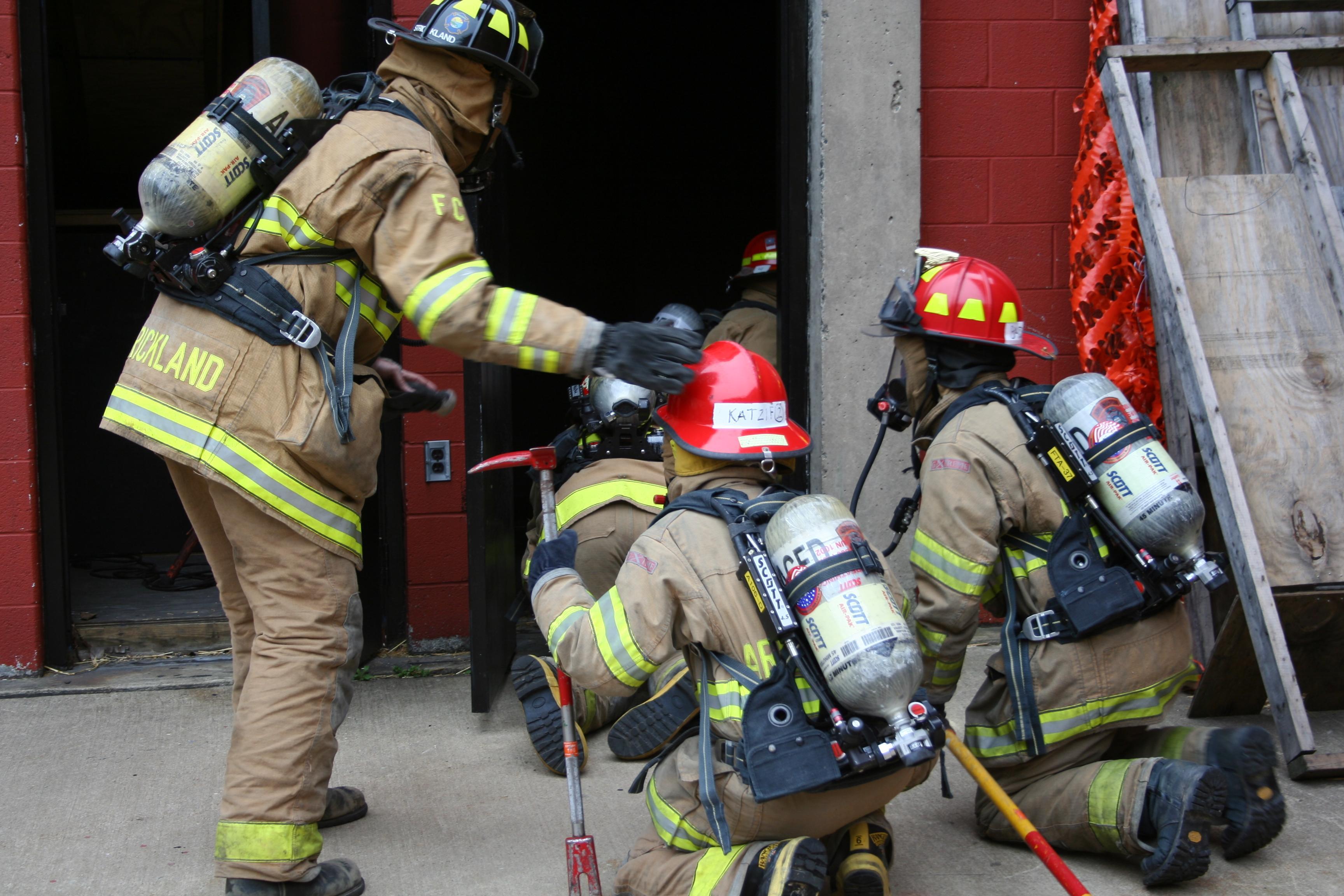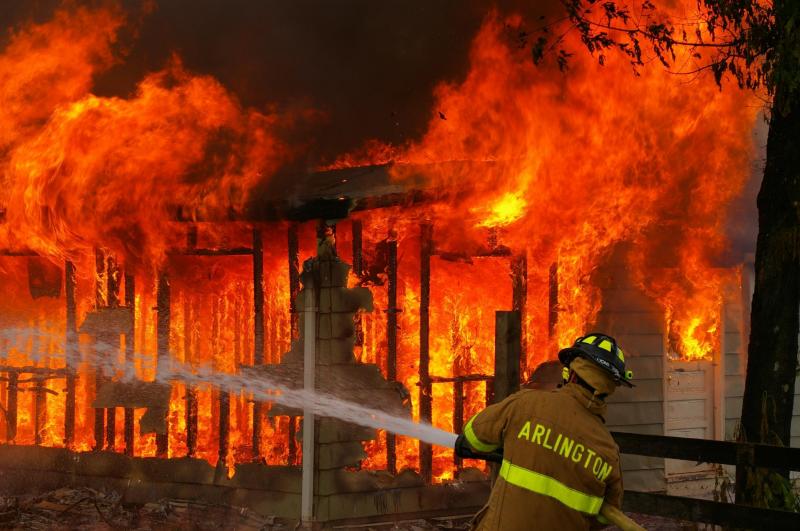Great advice doesn't just resonate in the moment — it stays with you, and you’ll find yourself going back to it as new challenges and opportunities present themselves. So it has been with me, and this simple phrase of “train like you fight” speaks to the importance of realistic training.
For 20 years, as I was honing my skills inside of aerospace and defense communications, I was also crawling around "burn buildings" with my fellow volunteer firefighters in Northern Virginia.
Made of cinderblock and steel, a burn building has one simple purpose: introduce firefighters to the smoke, noise, reduced visibility and 900° temperatures they can expect to encounter at a real fire. It’s typically the final evolution in a firefighter’s training, a crucible that’s simultaneously exciting and intimidating.
Why engage in this type of training? Isn’t it costlier and risker? Absolutely.
Does is make a difference? You better believe it.
 photo courtesy of David Schild
photo courtesy of David Schild
The burn building brings the concept of “train like you fight” to life. It takes concepts and tactics from the dryly academic to the blisteringly real. When the environment starts to deteriorate, basic skills become harder to remember, communication breaks down and what seemed simple at the firehouse (pulling hoses, climbing ladders, communicating with your crew, etc.) can become incredibly difficult.
You might be thinking, "That's a cool story Dave, but I'm not sending my communications staff into a burning structure. I'm leading a small team of professionals and we're ready for whatever is coming."
Oh, really?
Think hard about the internal and external challenges that lie ahead and ask yourself: Have we trained and prepared with the stresses and distractions that will occur on gameday? If not, how can we make our communications training and preparation more realistic?
Here are a few suggestions:
- Running a crisis communications drill? Don’t assume your tools will be readily at hand. Try turning off the phones or making your website inaccessible for a few hours. Select a few key team members and place them “on vacation and out of reach.” Can you still do your job without the technology and people you’ve come to rely on?
- Prepping your executives for high-profile congressional testimony? (We used to call this “murder boarding.”) You better have someone there to play the agitated, adversarial member of Congress who's going to ask about the CEO’s compensation and allegations that you’ve been doing business with a hostile foreign government.
- Media training for a live TV hit with one of your principals? Turn on some bright lights, apply some makeup and wire them up with a lavalier mic. See how quickly those talking points you drilled on become harder to remember.
 photo courtesy of David Schild
photo courtesy of David Schild
The point of stressful training is to prepare your team for how things will look and feel in the real world, to avoid making the toughest day on the job feel like the first day on the job.
It’s true whether you’re rolling up on a high rise with smoke showing or waking up to the news that your organization is at the center of a media firestorm. The closer you are to a realistic dress rehearsal, the further you are from a preventable disaster.
Train like you fight. Your team and your organization will be better for it.
David SchildDavid Schild is the founder and managing partner of Three Rivers Strategies, a strategic public affairs firm headquartered in Pittsburgh.